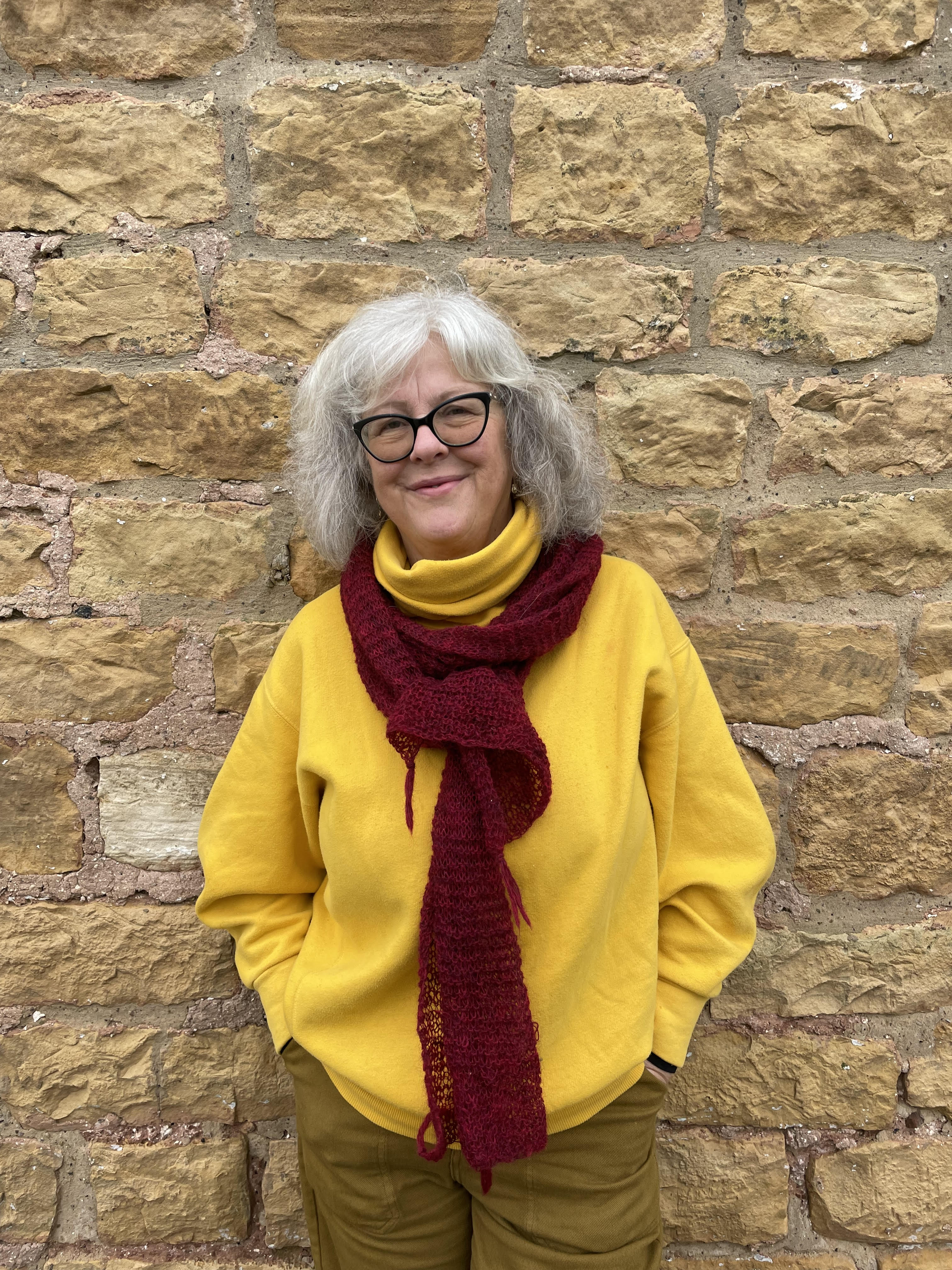"My loss of identity was overwhelming" – how I learnt to live with alopecia
Zelda Burborough shares how she found her confidence again after struggling with hair loss
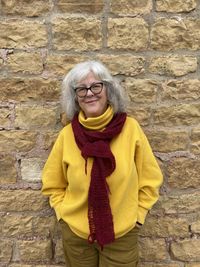
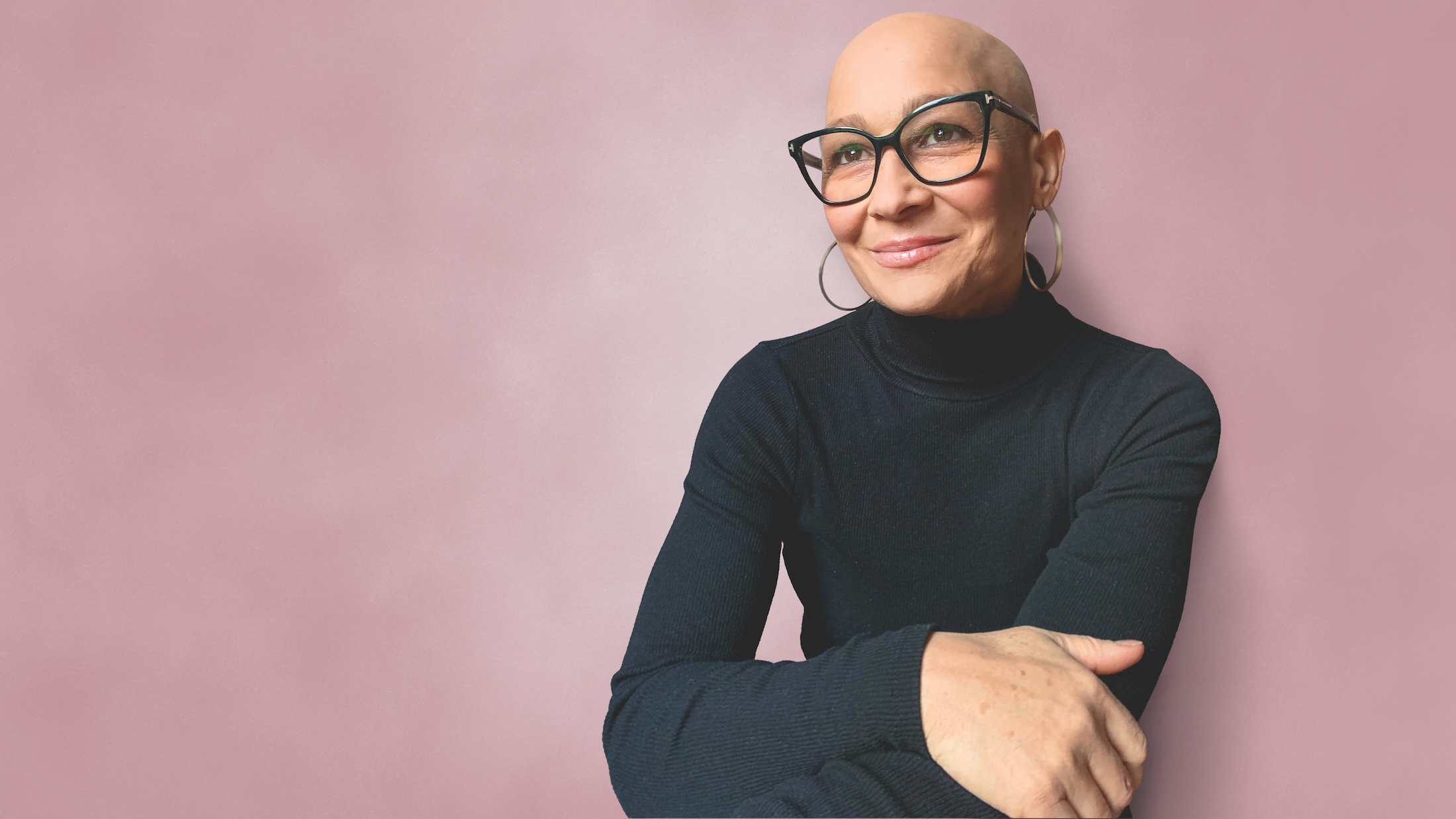
Sign up to our free daily email for the latest royal and entertainment news, interesting opinion, expert advice on styling and beauty trends, and no-nonsense guides to the health and wellness questions you want answered.
You are now subscribed
Your newsletter sign-up was successful
Want to add more newsletters?
"Expressing myself through my hair is something I used to love. Over the years, I would experiment with the latest cuts, and have had perms and highlights. I even went through a pink dye phase," begins Zelda Burborough. "But I had no idea how fundamental my hair was to my sense of self until it all fell out."
Zelda, 53, lives in Beckenham with her husband, Mark and three teenage children. She has lived with alopecia since 2018. She is now a media spokesperson for Changing Faces and a model with Zebedee Talent, an inclusive talent agency founded by two sisters-in-law. Here she shares her story of developing and living with alopecia.
"The hair loss began quite suddenly, not long after my father died in November 2018. Handfuls came out each time I brushed it. Over three weeks, a large bald patch appeared on the side of my head.
"It was scary and I feared it might be a symptom of serious illness, but a visit to my GP reassured me. When I told her I’d just lost my dad, she explained that hair loss is quite common after trauma or intense stress, and that it would probably regrow over time.
"In the following weeks, bald patches appeared all over my head. At first, I could rearrange my hair, so it wasn’t obvious. But before long, it was impossible to hide, and I grew increasingly self-conscious. Despair at my hair loss consumed me."
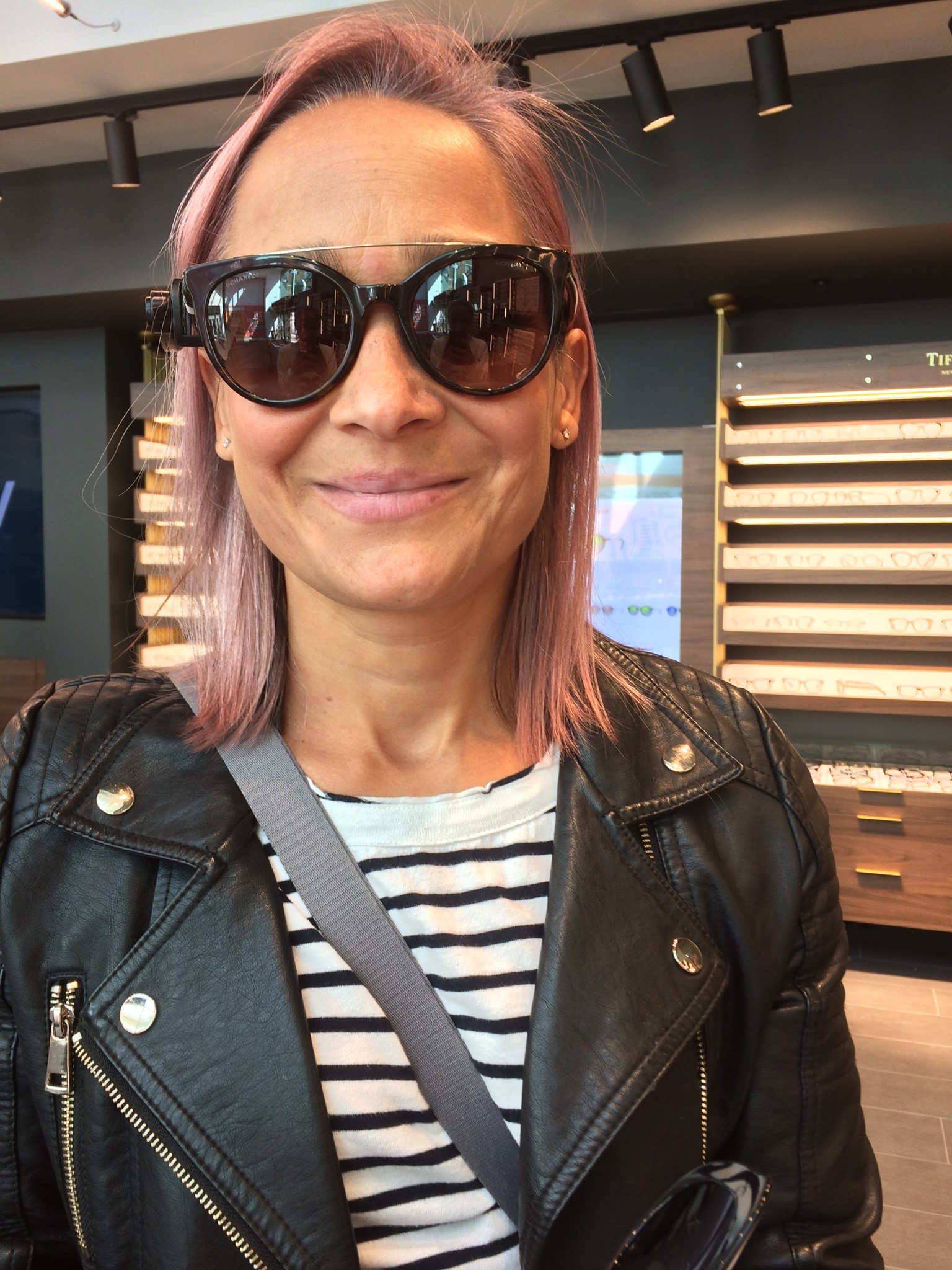
Zelda before losing her hair after the death of her father in November 2018
"When I looked in the mirror, the loss of my identity was overwhelming. I was working at a coffee shop and was riddled with anxiety every day. I wore headscarves and knew people assumed I had cancer.
"I bought a couple of wigs, but hardly wore them because they made me even more self-conscious. The hair loss continued, and after a couple of months, I went back to my GP in desperation. But again, I was told it would grow back.
Sign up to our free daily email for the latest royal and entertainment news, interesting opinion, expert advice on styling and beauty trends, and no-nonsense guides to the health and wellness questions you want answered.
"I felt like the only bald woman in a world of glossy, healthy hair. I no longer recognised myself, and the effect on my mental health was profound. I was trapped in a toxic inner dialogue. On one side was shame, guilt and constantly beating myself up for being vain. But on the other side I was struggling desperately.
"I had always been the strong, positive one in my family, and tried to keep up the facade. But it was so hard, especially with my son – he was 13 at the time, and awkward about being seen with me without a headwrap on. I didn’t blame him – I felt the same."
"I cried as we shaved off the last strands"
"When someone wears a headscarf, the natural assumption is that they’re going through chemo, and I couldn’t bear the pity in people’s eyes. My family and close friends were kind, supportive and reassuring, but I dreaded the school run and when I went food shopping, I’d often be in tears trying to summon the courage to get out of the car.
"By March 2019, I decided it was more painful watching the last few strands coming out than taking control and shaving it all off. My husband Mark helped me do it and we both cried. He’s been amazing, always telling me I was beautiful, even when I didn’t believe him."
Mixed blessings
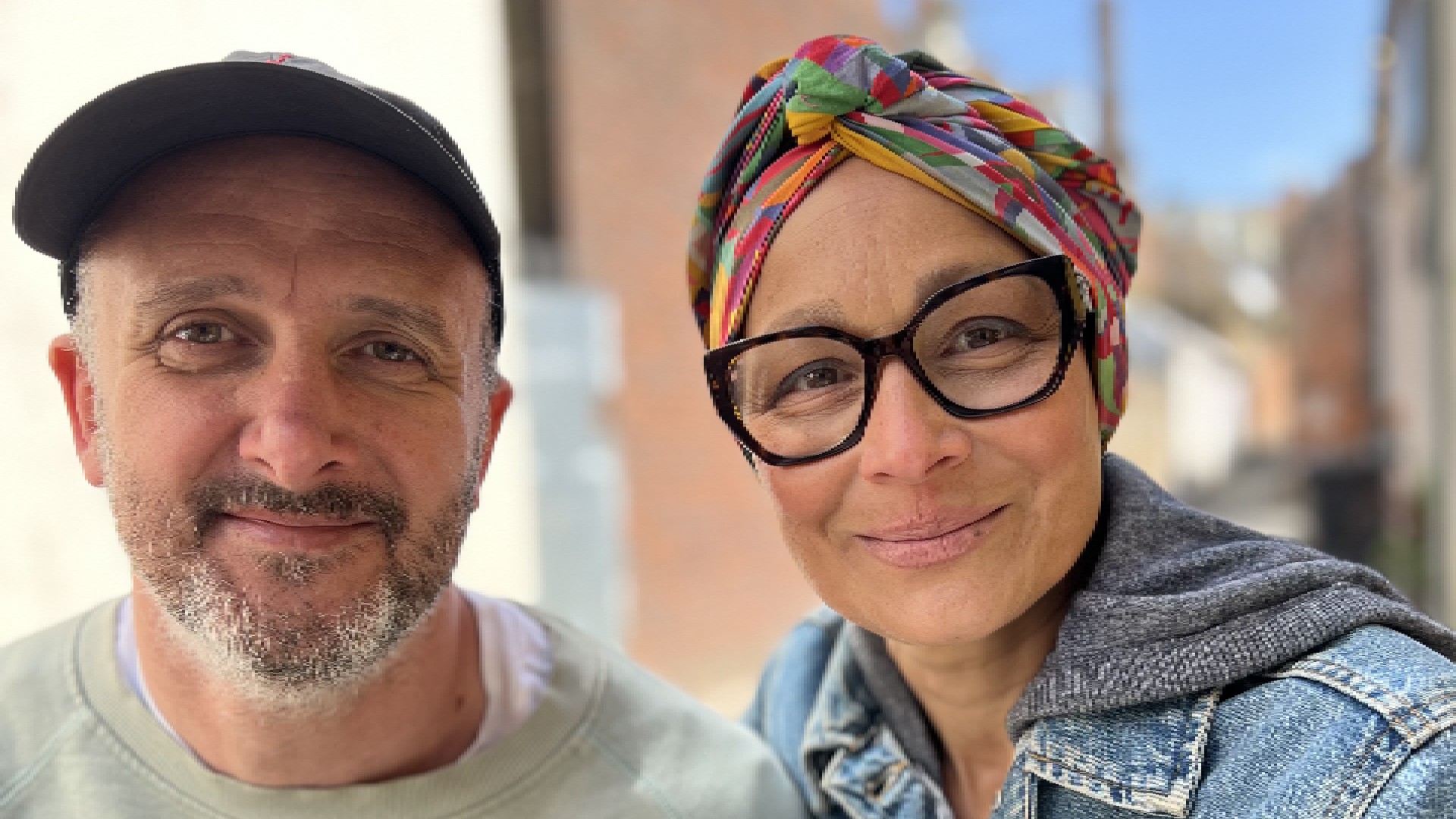
Zelda and her husband Mark
"A turning point came when I spoke to a friend whose daughter had alopecia since childhood. She’d decided not to wear a wig any more and messaged her classmates to tell them she’d look different at school the next day. Inspired by her bravery, I sent a WhatsApp to my school mums’ group.
"It was a mixed blessing. The replies were all supportive, but face to face, lots of people not from the school that I know and some I didn’t would tell me how ‘lucky’ I was. Being told it was ‘only hair’ fed into my negative self-talk because it made me think about how others were so much worse off.
"I know they were just trying to make me feel better, but it made me feel I should somehow be grateful to only be suffering from hair loss."
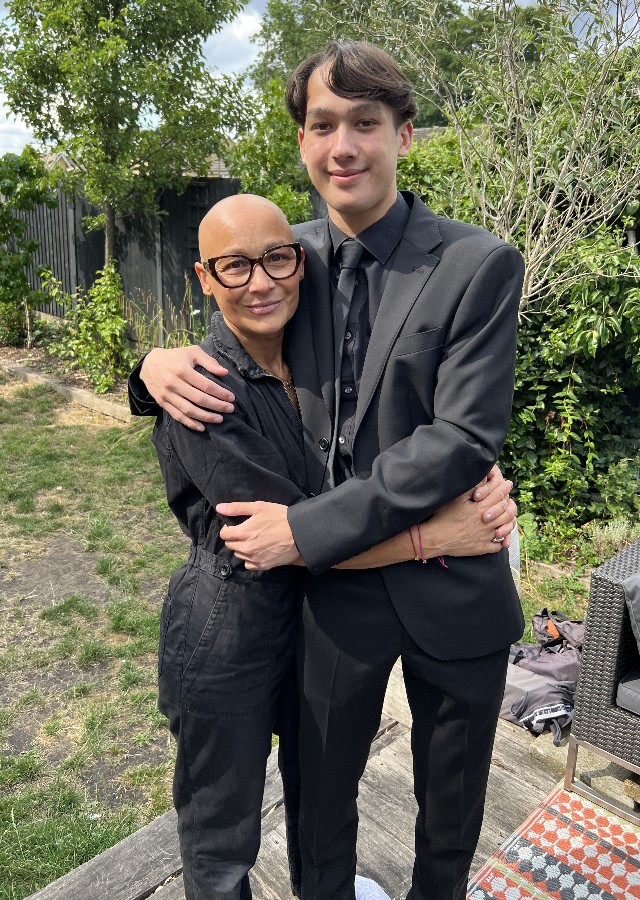
Zelda with son Rafferty
"That summer, I had some regrowth and the relief was incredible. The new hair made my head look like a fuzzball, but I felt like Rapunzel and I started imagining what style I’d have once my hair was longer.
"But as the anniversary of losing my dad approached, my hair started falling out again. Over a couple of weeks, I lost every single hair on my body.
"The loss of my eyelashes and eyebrows meant I could no longer hide behind headscarves. I looked properly sick, and suffered constant eye infections from dust."
Getting an alopecia universalis diagnosis
"My doctor finally diagnosed the ‘universalis’ variety of alopecia – an autoimmune condition where the body attacks its own hair follicles.
"I was told my hair may never grow back. Steroids and immunosuppressants can help, both of which have a range of quite extreme side effects I couldn’t face, from swelling and irritation to high blood pressure and diabetes.
"I was prescribed antidepressants, which helped, and lockdown gave me time to slowly adjust and accept the new me.
"I also discovered Changing Faces, an amazing charity that advocates for people with visible differences. Realising that I wasn’t alone was a lifesaver. When I saw that they were looking for new campaigners, I plucked up the courage to apply.
"Campaigning for CF has brought a new dimension to my life – I’ve even been drawn by hyperrealist artist Kelvin Okafor for a series of portraits of people with visible differences."
"I go out with my bald head held high"
"Over time, I’ve learnt to rock the bald look. I’ve had my eyebrows microbladed and a subtle eyeliner tattooed on my top lids.
"I choose colourful make-up, earrings and glasses. Some days I’ll glam it up with a turban. Other days, I wear a bright headscarf. And when I’m feeling particularly bold, I go out with my bald head held high.
"People still stare, but I’ve learnt to be kinder to myself and to accept how I look without shame. It’s not weak to ask for help, and it’s not vain to be upset that you look different.
"There’s no doubt that alopecia has made me (and my teenage children) kinder and more empathetic people. I still have days when I wish I had my hair back, but I’m proud of my self-acceptance."
Changing Faces provides free support and information for anyone with a visible difference – a scar, mark or condition on your face or body. For more information visit the charity's website.

This article first appeared in the August 2024 issue of woman&home magazine. Subscribe to the magazine for £6 for 6 issues.
Helen is a writer and editor with many years’ experience as editor-in-chief. She’s written on a wide range of topics for both national publications and brands, and particularly enjoys interviewing anyone with a fascinating and moving tale to tell. She now specialises in features about food, health and real-life issues, particularly focusing on sensitive, awareness-raising interviews in support of charities and community groups.
You must confirm your public display name before commenting
Please logout and then login again, you will then be prompted to enter your display name.
